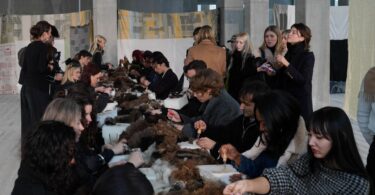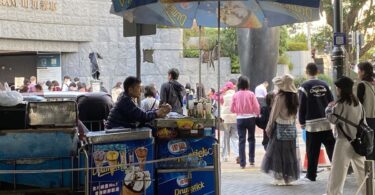Clarksburg, Maryland, U.S.A. – As an American, I was oblivious to Eurovision for years – and dark, dark years they were. Now, I look forward to the song contest every year, usually cheering for a different artist each time.
Listen to the author read this article:
My interest in Eurovision was sparked by my love of music, but I have stayed hooked because of the incredible diversity.
Even in my well-educated, suburban Maryland hometown, I am used to hearing about “Europe” as a cultural monolith. It is not uncommon to hear the phrases “European leaders” or “European colonialism,” a continental lumping of dozens of countries. Eurovision highlights the linguistic and artistic diversity between countries, completely rejecting this notion of homogeneity.
Especially today, when it seems like everyone is becoming uber-focused on themselves and their worlds, cultural literacy and awareness are paramount. Eurovision forces viewers to engage with the music, language, and talent of countries beyond their own.
Eurovision entries do everything except conform: from Austrian drag queen winner Conchita Wurst to Finnish hard-rock band entry in 2006, the contest not only embraces but embodies the value of difference. The celebration of queerness, satire, and irony certainly covers universal themes of expression and identity, but the flamboyant performances highlight how different cultures may approach them.
For my fellow Americans, who, like me, often consume global culture filtered through Hollywood and mainstream pop music, Eurovision offers an invitation to experience stories, sounds, and styles that exist outside our framework. It teaches us that cultural expression is not one-size-fits-all: what resonates in Tallinn might fall flat in Lisbon. And that’s the point.
Eurovision forces me to think about what makes us different, but more about what unites us across borders. Not the same foods, the same sounds, or the same ideas, but rather, our desire to feel connected.
To me, that is what music is: connection. Whether it is dancing with thousands of strangers to a song in a foreign language or listening to a lullaby, music is how we connect to our own cultures – and with Eurovision, it’s a way to broaden our horizons, too.
Yes, music connects us. And it demonstrates how diverse we are. Both are powerful, important, and necessary.
I will be following Eurovision for more than the great songs and incredible performances, and I encourage everyone to tune in, too.
Sreehitha Gandluri is a Senior Correspondent with Youth Journalism International from Maryland, U.S.A. She wrote this commentary.
Florian Gashi is a Junior Reporter with Youth Journalism International from Baden-Baden, Germany. He contributed the photo.



